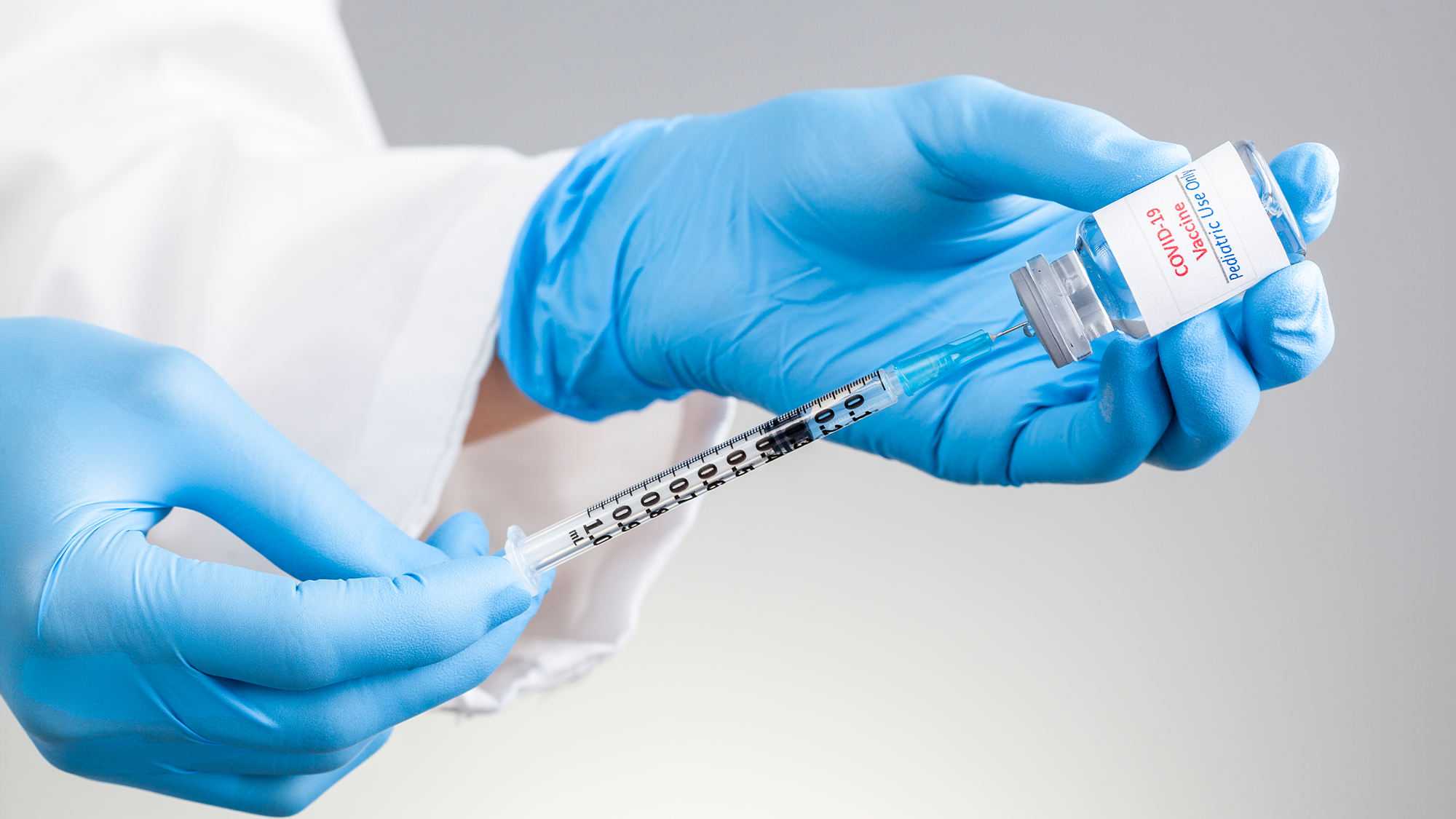

This story has been updated.
This week, the Food and Drug Administration (FDA) changed their emergency use authorizations (EUAs) for the bivalent Moderna and Pfizer-BioNTech COVID-19 vaccines to now include children from 5 years to six months old. The Centers for Disease Control and Prevention (CDC) followed up with its own announcement to expand use of the vaccine to the same age group.
The bivalent vaccines were first authorized by the FDA in August for adults and in some teens. Both the Moderna and Pfizer-BioNTech bivalent COVID-19 vaccines have mRNA components that correspond with the original COVID-19 strain and the Omicron variant (specifically the BA.4 and BA.5 lineages). The formula provides better protection against COVID-19 caused by the now year-old Omicron variant, according to the FDA.
[Related: FDA green lights Omicron-targeting mRNA vaccine boosters.]
“More children now have the opportunity to update their protection against COVID-19 with a bivalent COVID-19 vaccine, and we encourage parents and caregivers of those eligible to consider doing so—especially as we head into the holidays and winter months where more time will be spent indoors,” said FDA Commissioner Robert M. Califf in a press release. “As this virus has changed, and immunity from previous COVID-19 vaccination wanes, the more people who keep up to date on COVID-19 vaccinations, the more benefit there will be for individuals, families and public health by helping prevent severe illnesses, hospitalizations, and deaths.”
Here is what parents and caregivers of children from six months to five years old need to know:
- Children can receive the updated bivalent booster two months after completing their primary series of the monovalent (or original) Moderna COVID-19 Vaccine.
- Children that haven’t begun their three-dose primary series of the Pfizer-BioNTech COVID-19 vaccine or haven’t gotten the third dose of their primary series, will now get the bivalent Pfizer-BioNTech vaccine as that third booster dose after two doses of the original vaccine.
- Children who have already completed their three-dose primary series with the original Pfizer-BioNTech COVID-19 vaccine are not currently eligible for a booster dose of an updated bivalent vaccine at this time. The FDA expects that children in this age group who have already completed their primary vaccination series still have strong protection against the most serious outcomes of the virus, even from the Omicron variant. The agency also expects more data on giving an updated bivalent booster dose for these children in January 2023.
[Related: Omicron boosters are the future of COVID vaccines in the US.]
Patients who get the bivalent vaccines may see similar side effects that followed previous doses mRNA COVID-19 vaccines. The updated fact sheets for both bivalent COVID-19 vaccines provides more information about the potential side effects, as well as the risks of myocarditis and pericarditis.
“Vaccines remain the best defense against the most devastating consequences of disease caused by the currently circulating omicron variant, such as hospitalization and death. Based on available data, the updated, bivalent vaccines are expected to provide increased protection against COVID-19,” said Peter Marks, director of the FDA’s Center for Biologics Evaluation and Research, in a statement. “Parents and caregivers can be assured that the FDA has taken a great deal of care in our review, and we encourage parents of children of any age who are eligible for primary vaccination or a bivalent COVID-19 vaccine booster dose to consider seeking vaccination now as it can potentially help protect them from COVID-19 during a time when cases are increasing.”
The news comes as hospital systems around the US continue to be stretched thin by a “tripledemic” of flu, COVID-19, and respiratory syncytial virus (RSV). According to the CDC, 14 children have died from the flu nationwide.
